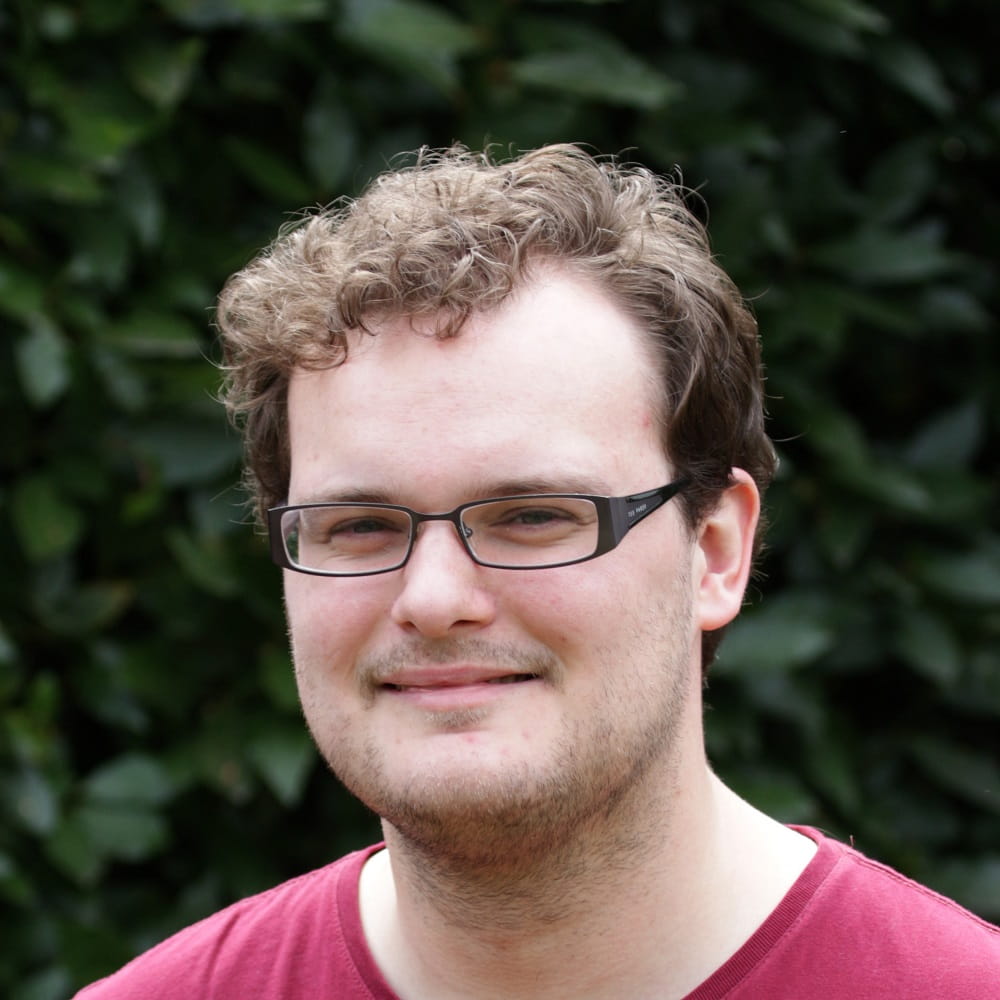Essex Sociology Research Newsletter Spring 2023

Special Mentions
Megan Capon
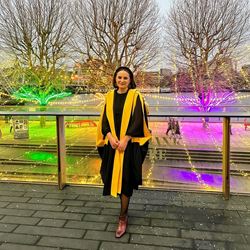 Many congratulations to our Department Manager Megan who graduated from Kings College London this January. Megan earned a distinction in MA Education Management with her dissertation ‘Parental influence on post-18 options in a knowledge economy. Analysis of English parents following the Skills for Jobs: Lifelong Learning for Opportunity and Growth White Paper'.
Many congratulations to our Department Manager Megan who graduated from Kings College London this January. Megan earned a distinction in MA Education Management with her dissertation ‘Parental influence on post-18 options in a knowledge economy. Analysis of English parents following the Skills for Jobs: Lifelong Learning for Opportunity and Growth White Paper'.
Well done Megan!
Professor Ken Plummer
Friends and colleagues paid tribute to Professor Ken Plummer, the internationally renowned researcher on sexualities and narrative, who has died. He lived in Wivenhoe for over forty years with his partner Ev Longland. Professor Plummer published dozens of books and over 150 articles with his landmark works shaping the study of sociology and how we understand ourselves.
Professorial Inaugural Lectures
Four academics from Sociology gave their Professorial Inaugural Lectures this term.
Professor Sandya Hewamanne considered how marginalized individuals and communities negotiate everyday life in her lecture ‘Transnationalism, Neoliberalism and Fluid Identities’. She said: “My work, overall, has focused on how marginalized individuals and communities negotiate everyday life in ways that are meaningful to them and in the process shape and stretch boundaries and structures that constrain. I analyse how such negotiations happen within intertwined social realities of neoliberalism and transnationalism--starting with global assembly line workers in Sri Lanka and extending to similar processes in the Global South. This lecture will focus on this intellectual journey.”
Professor Renee Luthra looked at the lives of immigrants and their children in her lecture ‘Origins and Destinations: Understanding the Lives of Immigrants and their Children’. She said: “High levels of immigration in many rich countries have dramatically increased their demographic and socioeconomic diversity, with lasting intergenerational effects: currently more than one in four children under the age of 18 in the UK has at least one foreign-born parent. The experience of migration alters an immigrant’s work, family, and social life; these changes affect their children as well. So to understand the lives of immigrants and their descendants, we need a unique perspective that takes the migration process into account, and also accounts for the influence of socialisation processes and experiences in their sending countries. This lecture will review research that applies this perspective, highlighting key questions about the role of sending country experiences, receiving country institutions, the migration process, and exposure to discrimination in shaping the lives of immigrants in the UK and abroad.”
Professor Róisín Ryan-Flood examined 'Intimate Citizenship in the Twenty First Century' in her lecture. She said: “Recent decades have witnessed dramatic transformations in intimacy, rights and equality. From the introduction of gay marriage to the review of donor conception regulations, intimate life possibilities have proliferated. This can also present new challenges and complexities as we attempt to understand the implications of social change for how we construct intimate lives in the contemporary world. This lecture will outline theories of gender, sexuality and social change and share recent research that explores these topics.”
Professor Anna Sergi's lecture was titled 'Chasing the mafia: how to research a myth'. She said: “Italian mafias are still often accompanied by morbid fascination by media and in popular culture. Mafiosi are often (wrongly) considered as smart, savvy men whose decision-making, when engaging in organised crime is rational and precise. My research ’chasing’ the ’ndrangheta, the Calabrian mafia across continents - from Australia to America and back into Europe - shows not only that narratives around mafias need to be challenged but that another, more grounded research approach, is needed to comprehend the ‘banality’ and normality of such groups and their crimes.”
Centre for Criminology
Our Centre for Criminology celebrates its 10 year anniversary this February. The Centre was established within the Department of Sociology in February 2013 under the directorship of Professor Dick Hobbs, who was succeeded in 2015 by Professor Nigel South – our director for six consecutive years – who was in turn succeeded in 2021 by Dr Anna Di Ronco. You can read Dr Di Ronco's blog about the centre.
Centre for Global South Studies
February sees the launch of the new Centre for Global South Studies. Director, Professor Sandya Hewamanne said: “As the first Centre for Global South Studies in the UK, we will be widening international research opportunities, and networking with scholars from the Global South. Our working paper series highlights works from scholars from the Global South, shining a spotlight on this crucially important area of the world and research.” Read the news article for more information about the launch.
Our Research Students
Salih Kinsun
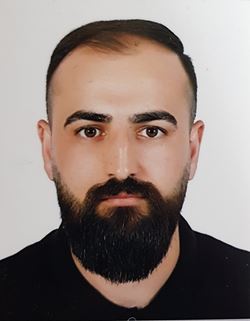 In early December 2022, I presented my paper named ‘Re-Thinking the Transformation of Journalists' Labour and Precarious Workplaces in the Digital Media Age’ at the conference Captured Media: Researching Media Systems in and after Transitions. The paper was based on an analysis of secondary data published in media reports between 2020 and 2022 in the UK. According to the findings gathered by utilizing reports, journalists' work has changed, become unstable, and is precarious. Based on those findings, we may say that journalists around the UK are considering a career in a field other than journalism. My results may help to shed light on the journalistic types in local British newspapers, which four and a half media giants own (Reach, Newsquest, Nationalworld, DC Thomson, and Express & Star). Furthermore, these findings have paved the way for a better understanding of how news sources have evolved and where news is made. Again, my results can provide insight into the power dynamics that shape the lives of local journalists in the news environment where they spend most of their time.
In early December 2022, I presented my paper named ‘Re-Thinking the Transformation of Journalists' Labour and Precarious Workplaces in the Digital Media Age’ at the conference Captured Media: Researching Media Systems in and after Transitions. The paper was based on an analysis of secondary data published in media reports between 2020 and 2022 in the UK. According to the findings gathered by utilizing reports, journalists' work has changed, become unstable, and is precarious. Based on those findings, we may say that journalists around the UK are considering a career in a field other than journalism. My results may help to shed light on the journalistic types in local British newspapers, which four and a half media giants own (Reach, Newsquest, Nationalworld, DC Thomson, and Express & Star). Furthermore, these findings have paved the way for a better understanding of how news sources have evolved and where news is made. Again, my results can provide insight into the power dynamics that shape the lives of local journalists in the news environment where they spend most of their time.
Our Academic Staff
Professor Ayse Guveli
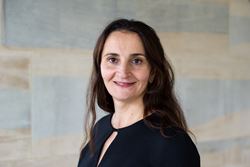
Professor Ayse Guveli has been awarded a major European Research Council grant for €2.7million. Ayse will be PI on the project, which is entitled The Third Generation: Dissimilation from Origins and Assimilation into Destination (ThirdGen).
ThirdGen* will analyse the gendered socioeconomic status and intergenerational care arrangements of the grandchildren of the pioneer labour migrants in ten Western European destination countries and Turkey as origin country. It will involve data collection on more than 4600 grandchildren in these countries. The project will run for five years starting in September 2023.
Dr Boroka Bo
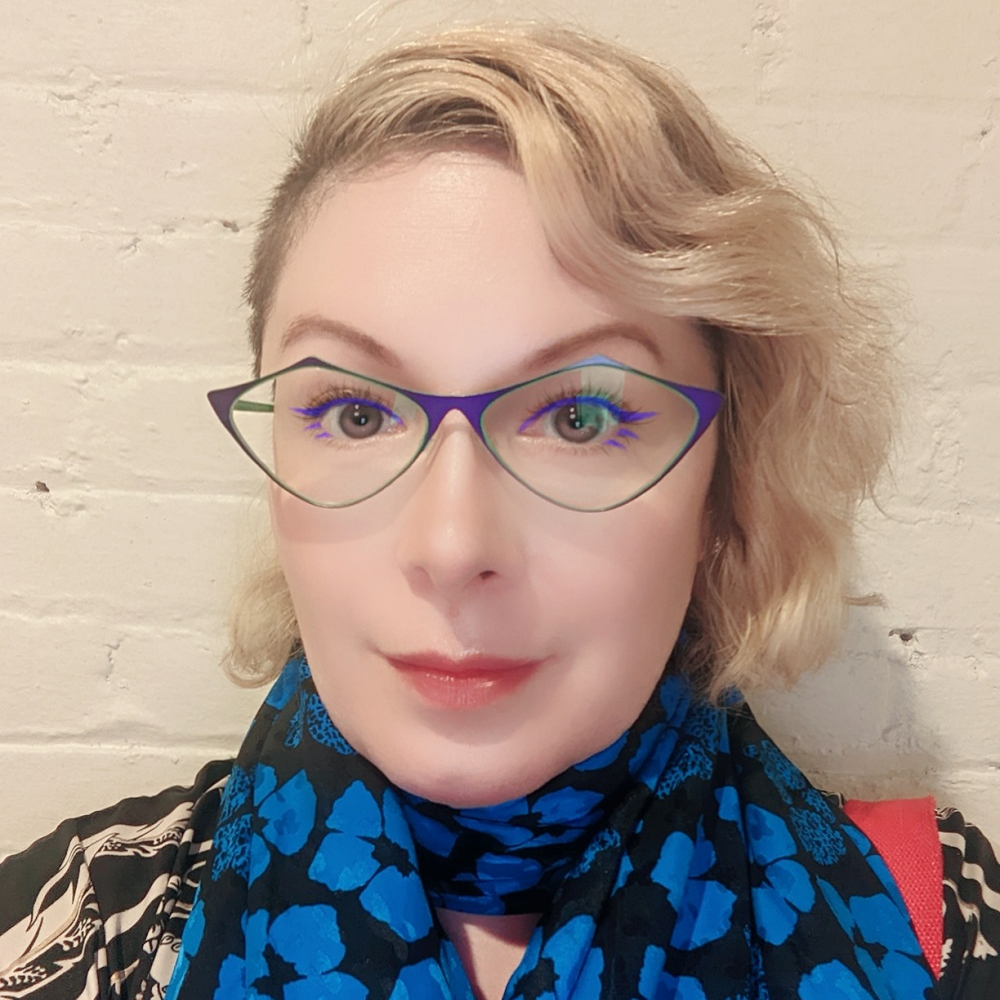
Boroka presented at COP27 via zoom in November as part of an amazing project involving our students, colleagues from Biological Sciences and Colchester council on efforts to preserve/adapt Colchester’s vital native oysters. A fantastic example of community social science having a real world impact! Read more here.
Dr Shaul Bar Haim
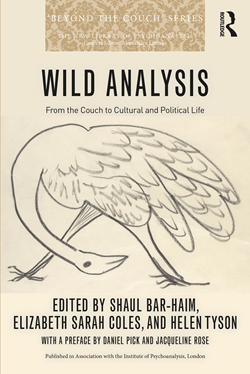 The book, Wild Analysis: From the Couch to Cultural and Political Life, which I co-edited with Dr Helen Tyson (Sussex University) and Dr Elizabeth Coles (Universitat Pompeu Fabra, Barcelona) has won the 2022 Gradiva Award for Best Edited Book. The Gradiva Awards are given each year by the US based National Association for the Advancement of Psychoanalysis (NAAP) for "literary and artistic achievements of those who have created works that represent and promote psychoanalysis and psychotherapy".
The book, Wild Analysis: From the Couch to Cultural and Political Life, which I co-edited with Dr Helen Tyson (Sussex University) and Dr Elizabeth Coles (Universitat Pompeu Fabra, Barcelona) has won the 2022 Gradiva Award for Best Edited Book. The Gradiva Awards are given each year by the US based National Association for the Advancement of Psychoanalysis (NAAP) for "literary and artistic achievements of those who have created works that represent and promote psychoanalysis and psychotherapy".
The book "proposes to re-open the question of so-called ‘wild’ analysis by exploring psychoanalytic ideas at their limits, arguing from a diverse range of perspectives that the thinking produced at these limits – where psychoanalysis strays into other disciplines, and vice versa, as well as moments of impasse in its own theoretical canon – points toward new futures for both psychoanalysis and the humanities".
Read the blog describing the editing process.
Shaul's book, The Maternalists: Psychoanalysis, Motherhood and the British Welfare State has also featured in an extensive review in the London Review of Books.
Professor Róisín Ryan-Flood
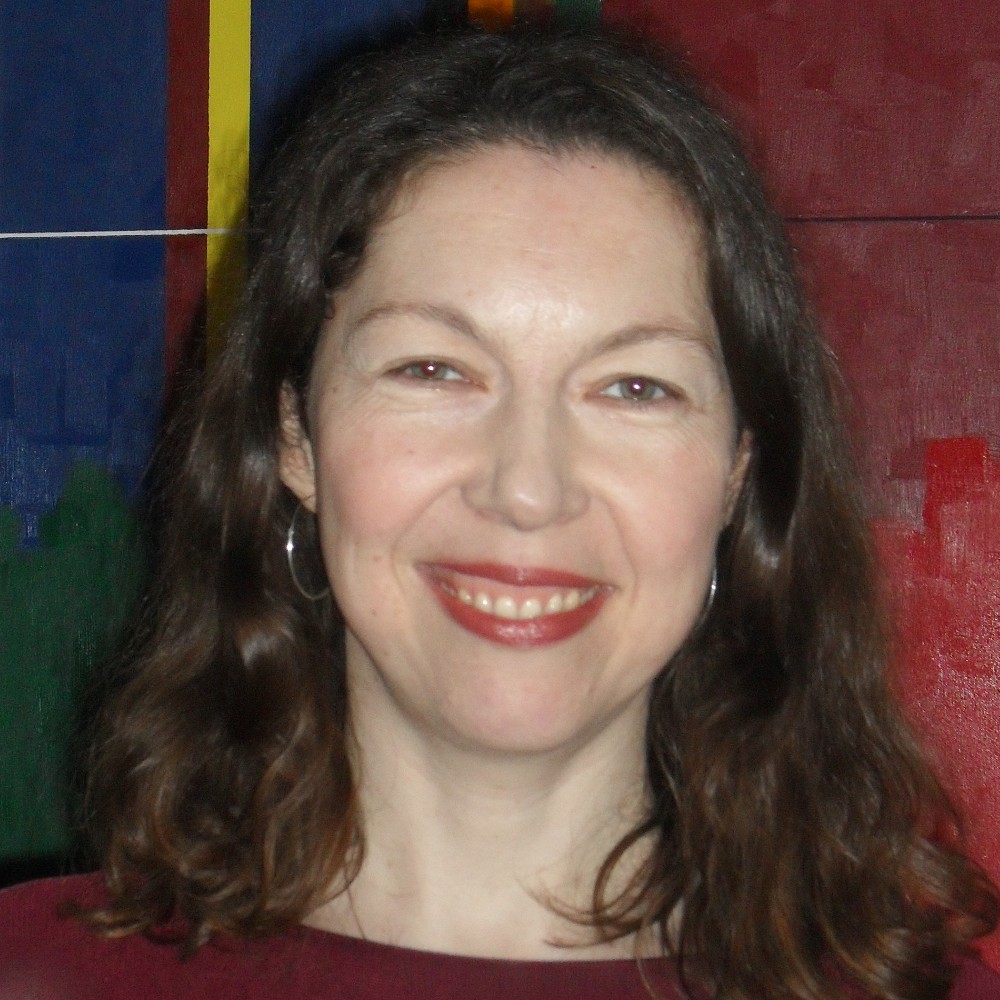
Róisín is PI on a new project called ‘Online Romance Fraud – supporting victims’ recovery through the development of an online toolkit.’ The Co-Is are Dr Katerina Hadjimatheou (Sociology) and Ms Sophia Carbonero (HHS). This project will collaborate with local police forces’ fraud specialists to do research with victims of online romance scamming and co-produce a toolkit to support victims, which will be the first of its kind in the UK. Online romance scamming is an often misunderstood crime that involves online grooming and domestic abuse, and is rapidly proliferating in the UK and beyond. Interviews will be carried out with victims of online romance fraud. Findings will inform the development of the toolkit, in collaboration with victims and support services. This project is funded by the ESRC Impact Acceleration Account and the University of Essex Participatory Research Fund.
Furthermore, funded by the British Academy and Leverhulme, Róisín is leading a project exploring the stories of people searching ‘off-grid’ for donors or donor relatives to make sense of their biological roots. “We would like people to get in touch and tell us their stories of finding biological relatives through the informal channels of social media or genetic testing, so we can better understand these seldom spoken about experiences".
Professor Linsey McGoey
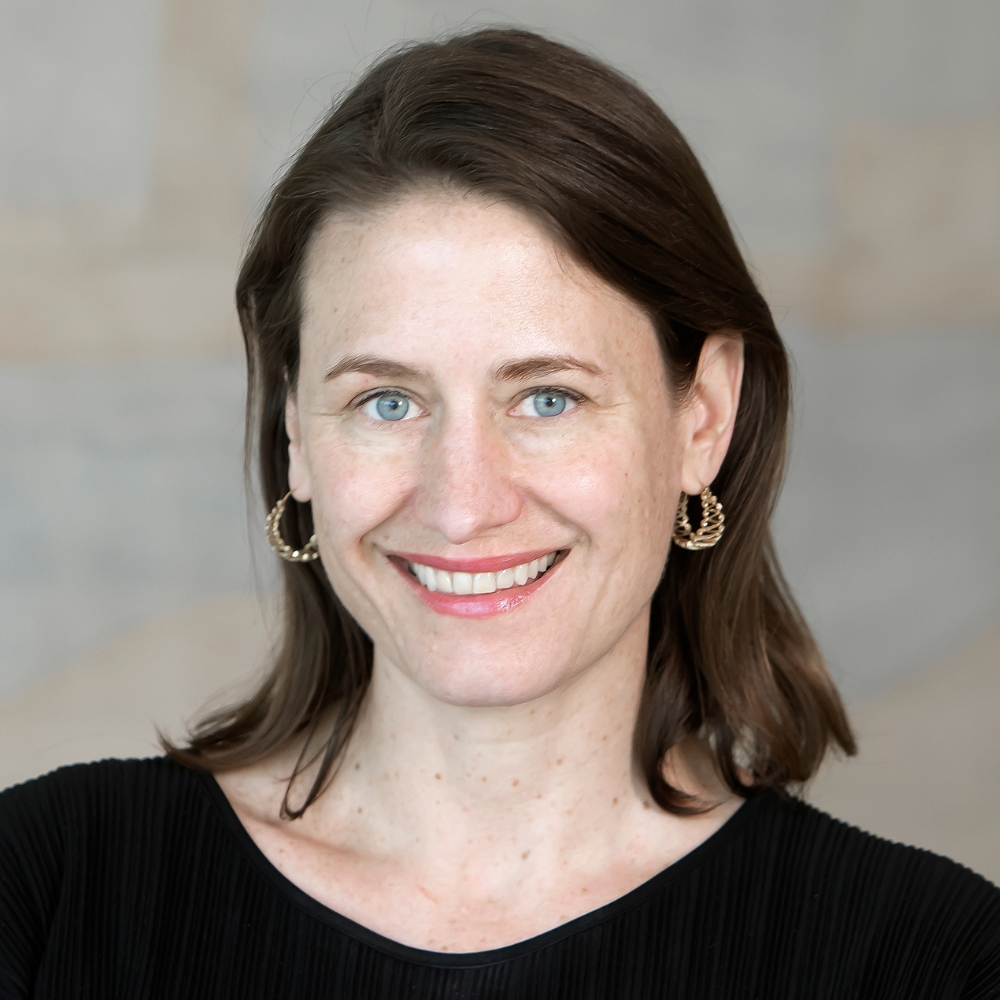
Linsey's article in The Guardian on the Michelle Mone PPE scandal spoke to her extensive work furthering the Sociology of Ignorance. To quote Linsey, speaking on government claims to ignorance....
"But when the government makes an artform of it, the costs are too great to dismiss. A democratic government is elected to nurture life and protect the public, not to act like it’s on a never-ending mindfulness retreat. When someone acts as if they simply didn’t know, we may be inclined to treat them less harshly. But when vast amounts of public funds are at stake, we shouldn’t."
Read the full article on The Guardian website.
Dr Katy Wheeler
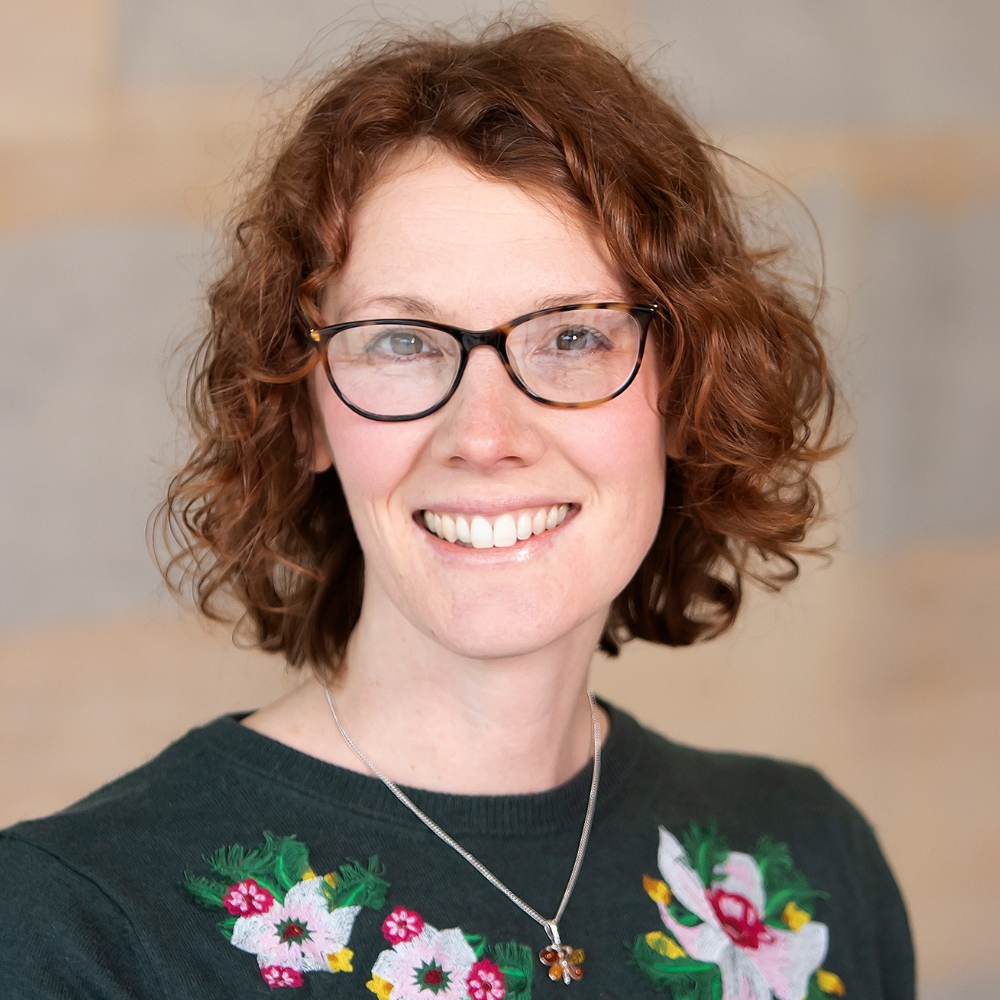
Katy has published the first article from her British Academy-funded project on Sustainability Education. Using qualitative content analysis of educational resources aimed at 7-11 year olds, this article shows how these resources represent and allocate responsibility for sustainability transitions within society. She argues that most resources lack a critical pedagogy by placing change in the hands of consumer choice and so do not equip young people with an understanding of the political and moral economies that shape their actions (or inactions) as citizens.
Professor Nick Allum
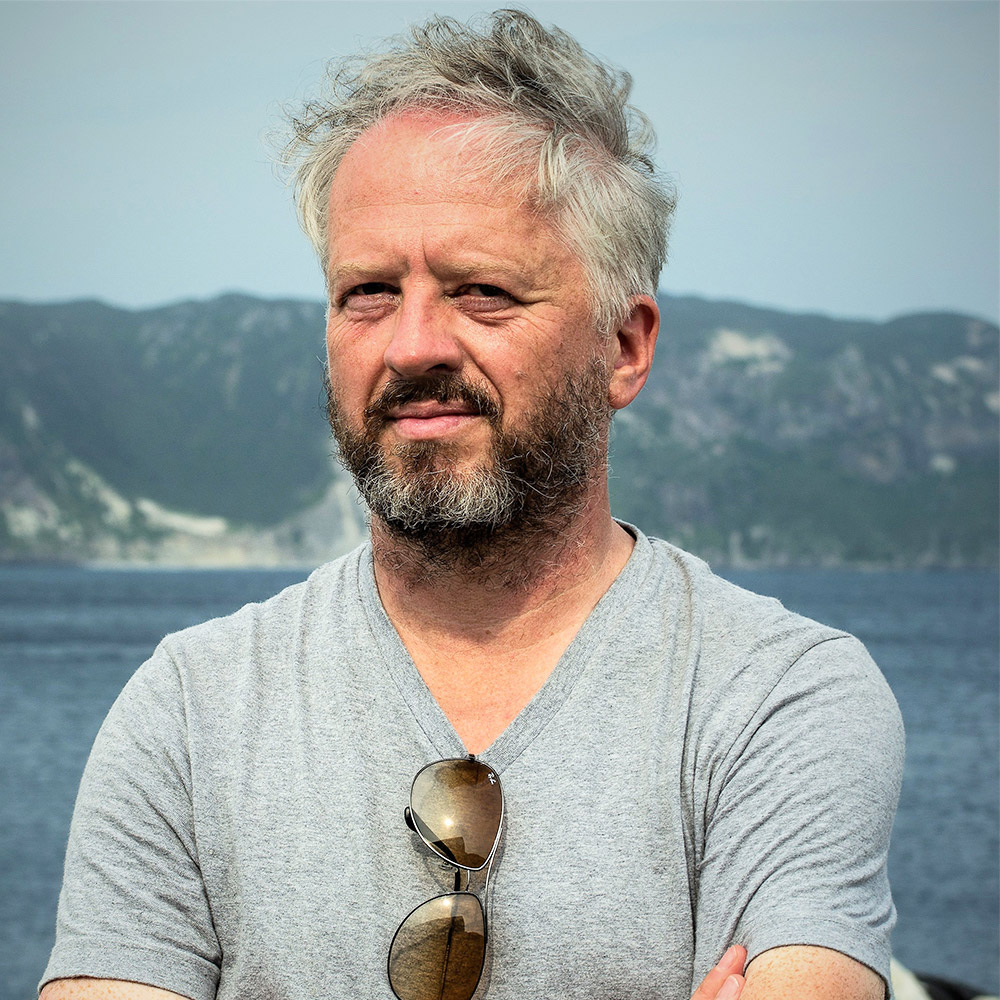
In December Nick was appointed to the National Academies of Science Engineering and Medicine committee on misinformation about science, meeting over the next year and a half in Washington DC. The committee aims to "[d]evelop a holistic framework for understanding the influences, mechanisms, and impacts of misinformation, applying a systems approach that considers the relationships between and impacts on individuals, groups, and societal dynamics". More information about Nick's appointment can be found on our news site, and you can learn more about the committee at the National Academies website.
Nick's work on 'Questionable Research Practices' in academia has been featured in Nature. The supporting article is in pre-print available here and an accessible summary can be found on our news site. An article on the same topic is forthcoming in F1000Research...
Allum, Nick, PhD, Abigail Reid, Miriam Bidoglia, George Gaskell, Noémie Aubert Bonn, Ivan Buljan, Simon Fuglsang, et al. “Researchers on Research Integrity: A Survey of European and American Researchers.” F1000Research (forthcoming).
Nick also has a new article co-written with department PhD alumnus Dr. Kirils Makerovs.
Makarovs, K., & Allum, N. (2023). Social identity and racial disparities in science literacy. Public Understanding of Science, 0(0).
Dr Sobia Ahmad Kaker
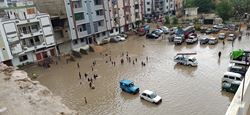 I had an article recently published in the Geographical Journal. Its a special one for me because I got to work on it with a dear friend and colleague based between IDS Sussex and IBA (Karachi). Both of us have been working on issues relating to urbanisation and inequalities in Karachi for about a decade now, and we were able to bring our perspectives together for the first time. It's a political piece for us, where we comment on the dysfunctional politics of the Pakistani megacity. We look at how the potentiality of a recurrent flooding crisis is mobilised by variously positioned urban actors/groups looking to strengthen their position within the city. And how the city suffers as a result of the resulting politics.
I had an article recently published in the Geographical Journal. Its a special one for me because I got to work on it with a dear friend and colleague based between IDS Sussex and IBA (Karachi). Both of us have been working on issues relating to urbanisation and inequalities in Karachi for about a decade now, and we were able to bring our perspectives together for the first time. It's a political piece for us, where we comment on the dysfunctional politics of the Pakistani megacity. We look at how the potentiality of a recurrent flooding crisis is mobilised by variously positioned urban actors/groups looking to strengthen their position within the city. And how the city suffers as a result of the resulting politics.
Kaker, S.A. and Anwar, N.H. (2022), From one flooding crisis to the next: Negotiating ‘the maybe’ in unequal Karachi. The Geographical Journal. 00, 1-14.
Professor Eamonn Carrabine
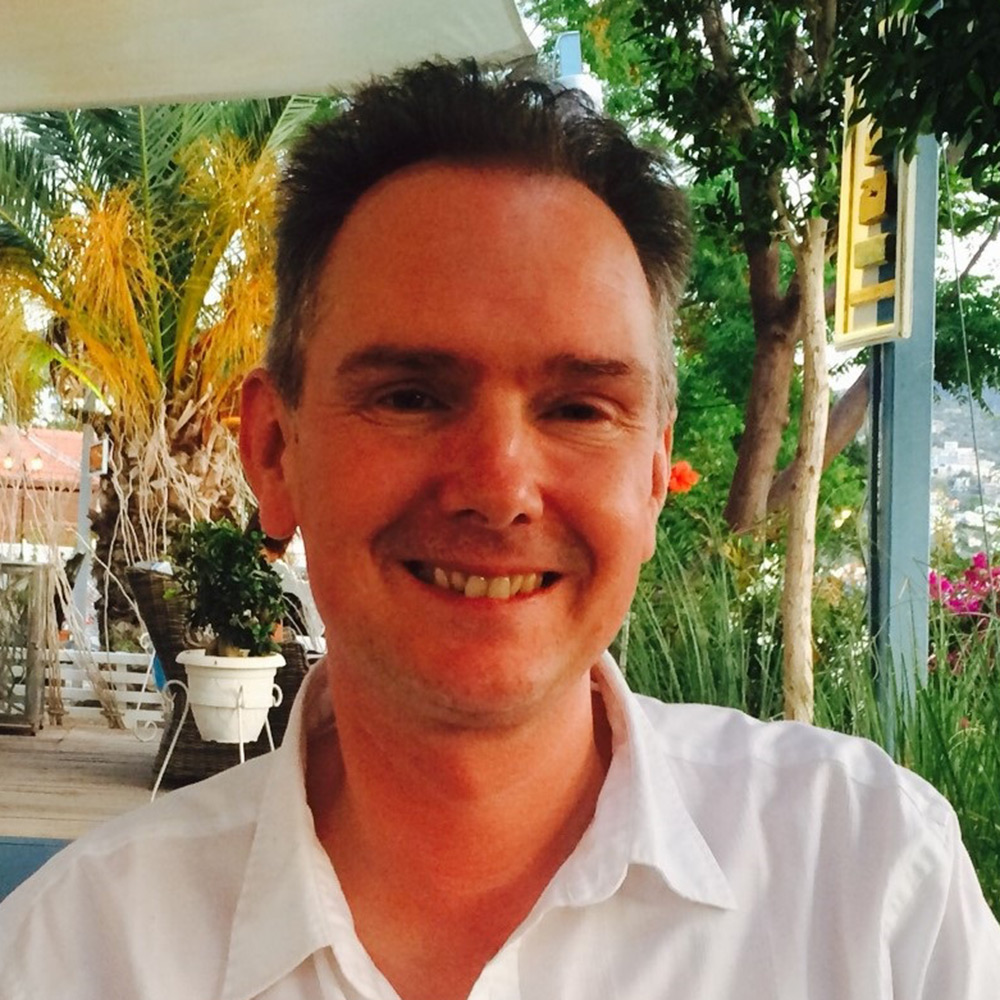
I am presenting a paper on ‘Landscape, Memory and Trauma: Reconfiguring the Violence of Representation’ on Wednesday 22 February at the Visual Culture Research Group at the University of Central Lancashire. I have just published a chapter on ‘The Tuol Sleng Museum of Genocidal Crimes: Phnom Penh, Cambodia’ in an edited collection on 50 Dark Destinations: Crime and Contemporary Tourism (Bristol University Press, 2023).
Dr Sarah Kunz
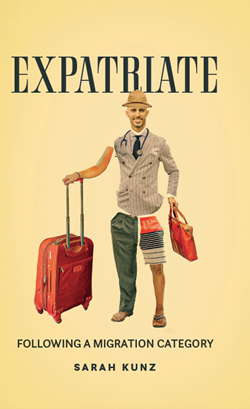 Sarah's book Expatriate: Following a migration category has been published with Manchester University Press this January. From the blurb...
Sarah's book Expatriate: Following a migration category has been published with Manchester University Press this January. From the blurb...
"Who are expatriates? How do they differ from other migrants? And why do such distinctions matter? This book interrogates the contested category ‘expatriate’. It draws on ethnographic and archival research to trace the category across different sites from the mid-twentieth-century era of decolonisation to today’s heated debates about migration. Doing so, it sheds light on the expatriate’s changing meaning, controversial uses and diverse lived experience. Then as now, debates about who is an expatriate reveal broader struggles about social inequality and power. This book argues that migration is a key terrain on which imperial and colonial power relations have been reproduced and translated. Today, migration categories like the expatriate remain at the heart of the insidious ways that intersecting material and symbolic inequalities are enacted. "
Praise for Expatriate...
'Brilliant, insightful and often surprising, this book leverages the ever-changing social category “expatriate” to explore the intersections of race, colonialism, management and migration. Scholarly work at its best.’ Bridget Anderson, University of Bristol
‘By focussing on the trajectory of a social category so many of us take for granted, this book offers a creative, critical and provocative engagement with the discursive and postcolonial history of the ways we think about migration more generally. For anyone concerned about the ways migration and mobility have been, and continue to be, governed, imagined and experienced, this book is an essential read.’ Tariq Jazeel, University College London
‘Kunz’s delicate, scholarly tapestry of ethnography and Kenyan independence archives reveals how the category ‘expatriate’ is entangled in the shifting postcolonial power dynamics of migration and the murky politics of oil. A must read for migration scholars.’ Caroline Knowles, Queen Mary, University of London
Dr Tara Mahfoud
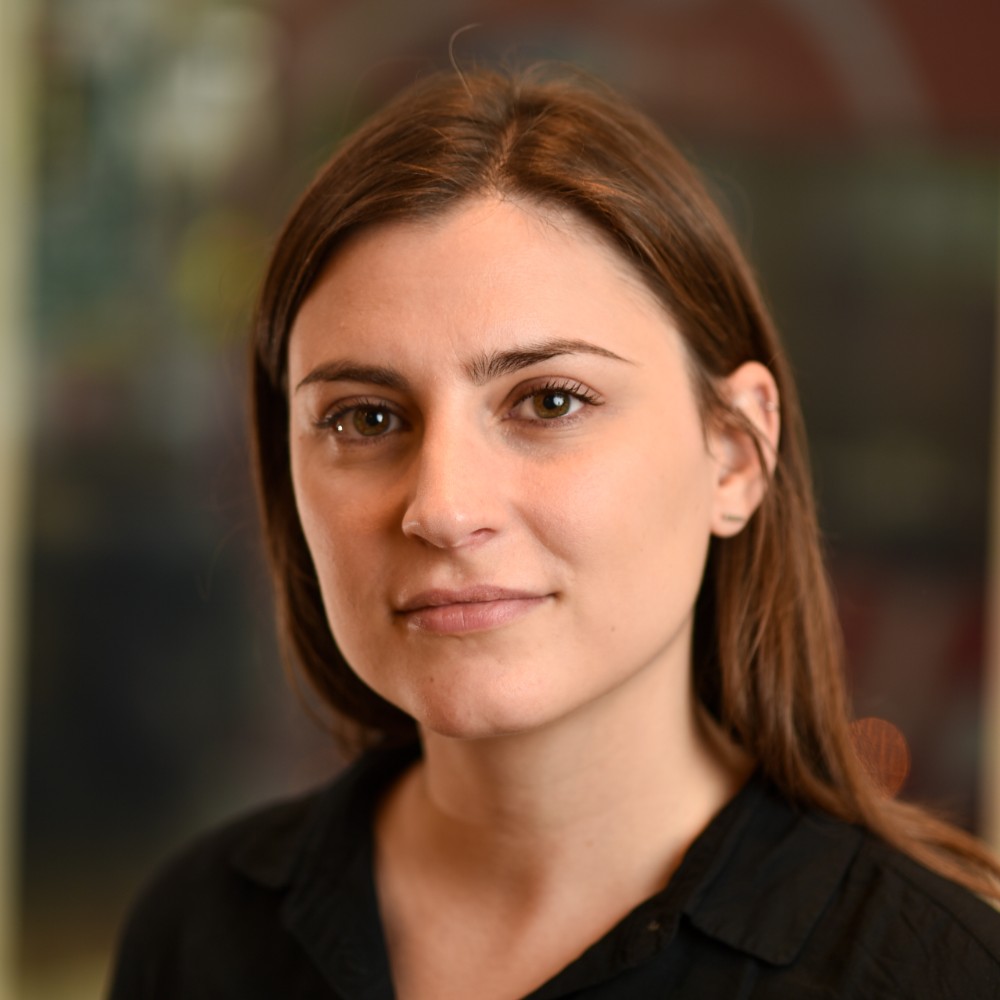
I was on research leave during the Autumn term, working on my book which is tentatively titled “Model Unity: On Brains, Simulations and Communities in European Neuroscience” and is under contract with MIT Press.
I was also a visiting fellow in the Centre for Biomedicine, Self and Society at the University of Edinburgh, which was such a great opportunity to be part of a community of scholars researching social and ethical aspects of biomedicine. As part of the fellowship, I attended weekly meetings and seminars, and gave a talk to PhD students and postdoctoral researchers about my work and how it has developed.
I was invited to give a talk for the Science, Technology, and Innovation Studies seminar series at the University of Edinburgh where I shared and received feedback on one of my book chapters, titled “A-Model: Model Assemblages, A-Contextual Data, and Organism Agnosticism”.
In December, I attended the annual meeting of the Society for Social Studies of Science which took place in Puebla, Mexico, jointly with the Latin American Society for the Social Studies of Science and Technology. I organised a panel with Dr Denielle Elliot (York University) and Dr Megh Marathe (University of Michigan) titled “Cerebral Frictions” which explored the material and epistemological boundaries and tensions that arise with neuro-centric conceptions of personhood and illness. We had two sessions with 8 papers, and I shared some newer research on “Locating Epileptogenic Zones: Personal Medicine, Personalised Models, and Virtual Brains.”
Latest Publications
Aicardi, Christine and Tara Mahfoud (2022). 'Formal and Informal Infrastructures of Collaboration in the Human Brain Project.' Science, Technology & Human Values.
Ulnicane, Inga, Tara Mahfoud and Arlees Salles (2022) 'Experimentation, learning, and dialogue: an RRI-inspired approach to dual-use of concern' Journal of Responsible Innovation.
Dr James Allen-Robertson
James has been invited to speak as part of the University of Syndey's 'Media@Sydney' seminar series (5 May). He will be speaking about his custom-built mapping tool designed to uncover community structures and interactions in dense large scale social networks, and how he is using it to explore the intersection between mainstream and extremist communities online. The event will be streamed online and is open to all.
Having found his open access tool for mass retrieval of social media photos and videos, academics at the University of Ankara, Turkey have reached out for assistance in collecting the user generated photos and videos associated with the recent earthquake and invited him to join their project on the role of social networks for crisis communication.
Our Alumni
Terry Smyth
Departmental alumnus Terry Smith has recently published a new book with Bloomsbury Press, Captive Fathers, Captive Children: Legacies of the War in the Far East. From the blurb...
"Why are the daughters and sons of Far East prisoners of war still captivated by the stories of their fathers? What is it that compels so many of the children, after so many years, to search for the details of their fathers' captivity? And how, over the decades, have they come to terms with their childhood memories? In his book Terry Smyth treads new ground by examining the processes through which the children's memory practices came to be rooted in the POW experiences of their fathers."
You can learn more about the book at the Bloomsbury website.
